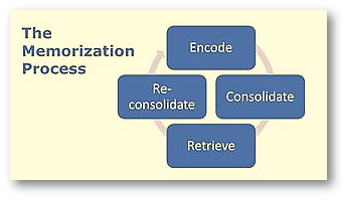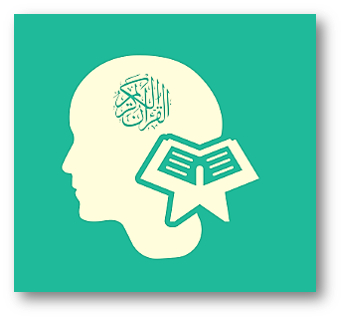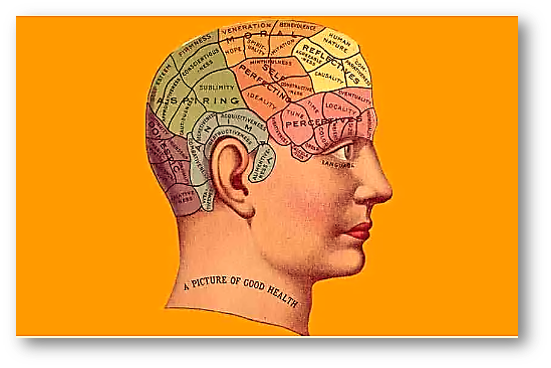MEMORY AND MEMORIZATION!!
Memory refers to the ability of the brain to retain and recall information, while memorization refers to the process of actively committing information to memory. Memorization techniques such as repetition, visualization, and association can aid in the retention of information in memory.
WHAT IS THE MEMORIZATION METHOD??

There are several memorization techniques that can be used to aid in the retention of information in memory. Some common methods include:
Rehearsal:
Repeating information over and over again to commit it to memory.
Association:
Linking new information to something already known or familiar.
Visualization:
Creating mental images of the information to be remembered.
Chunking:
Breaking down information into smaller, more manageable chunks.
Mnemonics:
Using a system of cues or tricks to help remember information.
Elaboration:
Adding detail, personal meaning, and connections to the information to be remembered.
Self-testing:
Quizzing oneself on the information to be remembered.
Spaced Repetition:
Reviewing information at increasing intervals to keep it in long-term memory.
It’s important to note that some methods may be more effective for certain types of information or for certain individuals, so it’s good to experiment with different techniques to find what works best for you.
WHAT TYPE OF SKILL IS MEMORIZATION??
Memorization is a cognitive skill that involves the ability to retain and recall information. It is an essential skill for learning and is used in a variety of settings including education, work, and daily life. Memorization can be used to acquire new knowledge, such as learning a new language or studying for a test, as well as to recall previously learned information, such as remembering a phone number or a grocery list. It is a fundamental part of human learning and is necessary for many other cognitive processes such as problem-solving, decision-making, and reasoning.
DIFFERENCE BETWEEN MEMORIZATION AND LEARNING!!

Memorization and learning are related but distinct processes.
Memorization refers to the process of committing information to memory, typically through repetition and repetition-based techniques. It is the process of committing something to memory, usually through repetition. It is focused on the retention of information, but it does not necessarily involve understanding or comprehension of the material.
Learning, on the other hand, is a broader process that involves acquiring and understanding new information, skills, or behaviors. It is a more complex and multifaceted process than memorization. That involves not only the retention of information but also the ability to use and apply that information in different contexts. It also includes the ability to make connections between new information and existing knowledge and to use critical thinking and problem-solving skills to understand and analyze the material.
In short, a memorization is a tool or a process that helps in learning by allowing the retention of information but is not equal to the process of learning itself. Learning involves understanding, analyzing, and applying the information to different contexts, whereas memorization is mainly about the retention of information.
HOW OUR BRAIN WORKS TO MEMORIZE??

The process of memorization involves several different regions of the brain working together. Here is a brief overview of how the brain works to memorize information:
Encoding:
When new information is first encountered, it is initially processed in the hippocampus, a region of the brain that is responsible for processing and consolidating new information into long-term memory.
Consolidation:
After the information is encoded, it is consolidated in the neocortex, the outer layer of the brain, where it is converted into a more permanent form of memory. This process can take several minutes to several days.
Retrieval:
When we need to recall information, the hippocampus retrieves the memory trace from the neocortex and sends it back to the regions of the brain where it was originally processed.
Interference:
The ability to recall information can be affected by interference from other information. For example, Proactive interference occurs when previously learned information interferes with the recall of new information, and Retroactive interference occurs when new information interferes with the recall of previously learned information.
Rehearsal:
Rehearsal is one of the best ways to keep information in your short-term memory. When you rehearse information, you are repeating it over and over again, which helps to transfer it from your short-term memory to your long-term memory.
Overall, the process of memorization is complex and involves multiple regions of the brain working together. Understanding how the brain works to memorize information can help us develop strategies to improve our memory and retention of information.
IS THE MEMORIZATION CAPABILITY OF EVERY PERSON DIFFERENT??
Yes, the ability to memorize information can vary among individuals. Factors such as age, genetics, and overall cognitive abilities can affect an individual’s ability to memorize information.
Age:
Memory typically declines with age, and older adults may have more difficulty memorizing new information than younger adults.
Genetics:
Research suggests that certain genetic variations may affect memory and the ability to memorize information. Some studies have found that certain genetic variations may be linked to a higher risk of developing memory problems later in life.
Cognitive abilities:
Overall cognitive abilities, such as intelligence and attention span, can also affect the ability to memorize information. Individuals with higher cognitive abilities may have an easier time memorizing information than those with lower cognitive abilities.
Additionally, the way of teaching and the method of memorization can impact the ability of an individual to memorize information. Some people may be more visual learners and remember information better when it is presented to them in a visual format, while others may be more auditory learners and remember information better when it is presented to them through sound.
It’s important to note that even though some people may have natural advantages when it comes to memorization, everyone can improve their memory through the use of various memorization techniques and by regularly challenging their brain with new information.
WHAT ARE THE BEST EXAMPLES OF MEMORIZATION??
A good example of memorization is the ability to memorize a list of items, such as a grocery list, a phone number, or a set of historical dates. These types of memorization tasks require the individual to commit a specific set of information to memory and then recall it later.
Another example of memorization is the ability to memorize a poem, a song, or a speech. This type of memorization involves not only committing the words to memory but also their meaning and the context in which they are used. This can be challenging because there may be multiple ways to interpret or understand the information.
A third example of memorization is learning a new skill, such as playing a musical instrument or a sport. This type of memorization involves committing specific sequences of movements or actions to memory and then being able to recall and execute them correctly.
Overall, memorization can take many forms and it can be applied to a wide range of tasks and activities. The specific example will depend on the context, the type of information, and the purpose of memorization.
MUSLIMS MEMORIZE QURAAN-E-KAREEM AS THE BEST EXAMPLE OF MEMORIZATION IN THE WORLD!!

Muslims memorizing the Quran is certainly an impressive example of memorization. The Quran is considered the holy book of Islam and is believed to be the word of God as revealed to the Prophet Muhammad. Many Muslims make it a goal to memorize the entire Quran, which can take years of dedicated effort and practice.
Memorizing the Quran requires committing large amounts of text to memory, including not only the words themselves but also their meanings and context. It also requires a deep understanding and comprehension of the material in order to interpret it correctly.
For Muslims, memorizing the Quran is not only an act of devotion but also an important way to gain closeness to God and deepen their understanding and practice of their faith. For many, memorizing the Quran is a lifelong pursuit and is considered one of the highest forms of worship.
Overall, memorizing the Quran is certainly an impressive example of memorization, as it requires a significant amount of effort, dedication, and understanding. It’s a complex task that requires not only memory but also comprehension and understanding.
MYTHS AND FACTS ABOUT MEMORIZATION!!
There are several myths and misconceptions about memorization that are worth discussing:
Myth: Memorization is not important because we can always look up information.
Fact: While it’s true that we have access to a vast amount of information at our fingertips, the ability to memorize information is still important. Memorization allows us to recall information quickly and easily, without having to search for it. It also allows us to use the information in different contexts, such as problem-solving and decision-making.
Myth: Memorization is only for students and not useful for adults.
Fact: Memorization is not just for students, it is a useful skill for everyone, regardless of their age. Adults also need to memorize information for work and daily life, such as phone numbers, addresses, appointments, and procedures.
Myth: Some people are just naturally good at memorization, while others are not.
Fact: While some people may have a natural advantage when it comes to memorization, everyone can improve their memory through the use of various memorization techniques and by regularly challenging their brain with new information.
Myth: Memorization is only about repeating information over and over again.
Fact: Memorization is not only about repeating information, but also about understanding and making connections to the information. Techniques such as visualization, association, and elaboration can help to make the information more meaningful and easier to remember.
Myth: Using mnemonics is cheating.
Fact: Mnemonics are memory aids that can help to make information more memorable. Using mnemonics is not cheating, but it’s a method to help you to memorize better.
Overall, there are many myths and misconceptions about memorization, but it’s important to understand that memorization is an important skill that can be improved with practice and the use of various techniques.
KEYWORDS:
Memory retention, Long-term memory, Short-term memory, Encoding, Consolidation, Retrieval, Interference, Rehearsal, Mnemonics, Spaced repetition, Visualization, Association, Elaboration, Self-testing, Chunking, Cognitive abilities, Attention, Learning, Comprehension, Recollection
REFERENCES:
http://proceedings.mlr.press/v80/chatterjee18a/chatterjee18a.pdf

